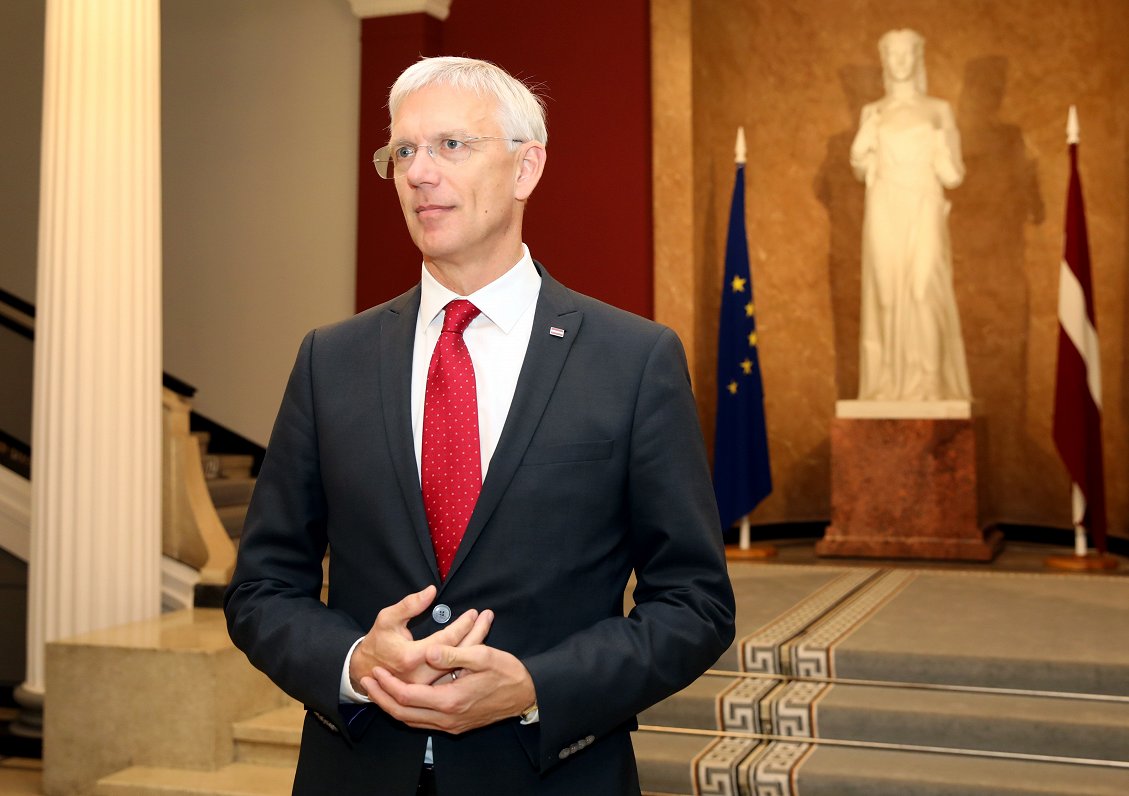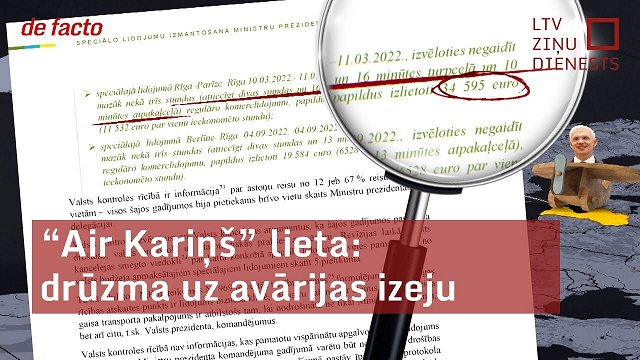"Three months after the 13th Saeima elections, the parties agreed on a model of cooperation to form a government with five political parties. It is no secret that from the very first day, there were various speculations about the incompatibility of so many parties, as it potentially meant a cumbersome process for reaching any decision. Practice has proven otherwise: despite sometimes long and arduous discussions, this government has been able to not only set specific goals but also achieve step by step improvements in various areas, from financial sector supervision to the local government administration and essential health care and education," Kariņš said.
Kariņš' government first year facts
During its first year, the government of Prime Minister Krišjānis Kariņš has held 60 cabinet meetings: 48 scheduled meetings and 12 extraordinary meetings. The total duration of these meetings was 137 hours, equivalent to nearly 6 days and nights.
According to the government's own figures it dealt with a total of 2,307 items, with an average of 47 items per session.
691 Cabinet regulations were adopted, 656 Cabinet orders were approved and 7 Cabinet instructions were approved.
243 draft laws and 1 draft Saeima resolution were approved and sent to the Saeima.
Krišjānis Kariņš issued 362 Prime Ministerial orders during the year, which obviously works out at an average of almost exactly one per day. Perhaps he issues one every morning with his cornflakes and vitamin pill?
"From day one, we have been working to achieve a higher level of prosperity in the country by reducing inequality and building trust among ourselves and in public administration. I have described this as "the path to Nordic prosperity." This is the way to increase investment in our economy, the way to greater fairness and justice in our society.
"The first year of the government has done a tremendous job of streamlining the supervision of the financial sector. When taking over the reins of government, I defined it as an urgent priority. About half a year before the government came in, our financial sector supervisory system had received a negative international rating. In effect, this meant that fundamental changes were needed to prevent the country from being on the so-called "gray list", which could seriously damage our economy.
"In the course of the year, the government has expanded the mandate of the Financial and Capital Market Commission (FKTK), implemented legislation to prevent money laundering, and has a new FKTK management and a new Governor of the Bank of Latvia. We have strengthened our financial sector to serve well as the backbone of the economy," Kariņš said.
Meanwhile, work on local government reform continues despite opposition from many local councils that face the prospect of mergers or liquidation.
"The debate on new municipalities is an emotional one for many, and it is understandable. Economic and practical considerations sometimes clash with local identities and habits. I am convinced that members of the Saeima will be able to agree on a new model for local governments. It is important to remember that municipalities must be strong and capable of performing the functions entrusted to them," Kariņš said.
Turning to the future he said that the next twelve months would require his ministers "to be able to provide the public with answers to other long-standing questions" in areas such as speeding up the sluggish pace of the legal system, establishing a tax system in which non-payment is not an option and improving education and healthcare provision.
"In the last thirty years, we have done a lot to make our country what we want it to be. The foundations are laid and they are solid. Our job is to strengthen them. Democracy means that the citizens themselves believe in the state system. Strengthening justice and the rule of law in the country is the task of the second year of government work that we must do together," the prime minister concluded.
As reported at the time by LSM, the Kariņš administration took office on January 23, 2019.































